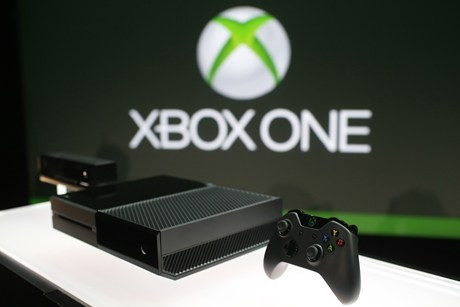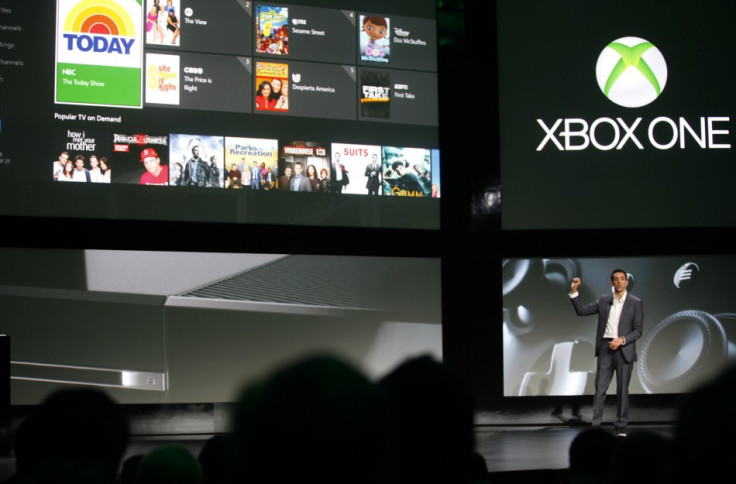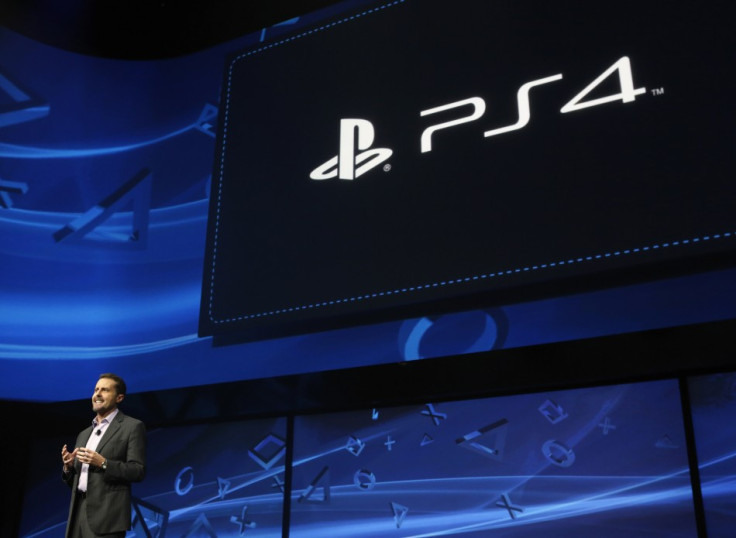PlayStation 4 Will Struggle Against Xbox One
Microsoft and Sony both have very different machines ready for the next console war, but who will win out in the end?

With the PlayStation 4 and Xbox One now officially announced, we're looking at a fresh console race between two very different machines. On paper, they're almost identical. They both have 8GB of RAM, Blu-ray drives, x86 architecture and chips by AMD. But in spirit, they're total opposites.
Microsoft has video features, a slick interface and an all-in-one mentality; it's gunning for a broad church of consumers. The PS4 on the other hand is all about the games. If you recall February's launch event, we saw one developer after another talking about what new things the console would allow them to do. It seems, right now at least, that the PS4 is a much more streamlined proposition.
"Microsoft is approaching this from the very top of Microsoft, from the balance sheet," says Enders analyst Heloise Thomson. "They're saying to themselves 'Xbox is going to be one of our core products at this point and we really need to think about how we're going to maximise revenue across the board, long-term.' They're going to tie in all the other products they give people: Everywhere, Microsoft.
Thompson believe the Xbox One could help prop up other products within the company: "PC sales are down; the Windows smartphone doesn't have much market share. I think they're gunning for the Xbox to be a major product so they can start pushing their brand into a lot of new revenue streams. They're just not winning the smartphone battle. PCs aren't a growing division anymore. It makes sense for them to ask 'where's the next frontier?'"
Living-room
But that comes with its own dangers. The Xbox brand is built around big games and big exclusives, so by heading towards a bigger demographic, Microsoft risks alienating its core consumers.
"It's definitely a different proposition," Thomson continues. "For gamers, though, I feel like it was a big let-down. A lot of the press around it were gamers and I think Sony understood that - the people who are going to be first out the gate are going to be thinking what are doing for me as a gamer?
"A lot of that processor is going to be dedicated to running services in the background which is going to be a problem for developers who really want to maximise the box's potential for gaming. It means it has actually got less potential for gaming, I would say."

Fireplace
The drive towards the living-room is not exactly straightforward either. Back in the 1950s, the television was king; as Dean Donaldson put it in The Evolution of TV Viewing, it was like a fireplace or a hearth, something the whole family congregated around to be entertained. But that's not the way anymore. Those downward PC sales Thomson mentions are due in part to a rise in tablets, smartphones and laptops, personal devices which each family member uses in their own bedroom.
The hallowed ground of the Waltons' living-room is something of a myth; aside from in ad campaigns for all-in-one boxes like the Xbox, it doesn't really exist anymore.
"Is there potential for people to buy the box just for TV services?," asks Thomson. "The people who buy the next console, surely, will be fished from the pool of existing gamers. People already have boxes under their televisions. All Microsoft is doing is piping it in through their machine.
"That seems like a marketing dream. You have mum, dad, the little boy and the little girl all sat in the living-room playing Xbox together, which no-one does. No-one Skypes grandma."
Converts
Selling people a TV box and then hoping they'll take up gaming is wishful thinking, too. The Wii managed to smuggle itself into the living room, but it's not as if everyone who played it then graduated to hardcore PS3 or 360 games. The "for everyone" machines like the iPad pride themselves on brief, simplistic and casual games that users can pick up and put down again; the Xbox One might get bought by users looking for a TV box, but Thomson warns it's unlikely to convert many people to gaming:
"The ultimate fantasy of both manufacturers is to turn non-gamers into gamers, but that's very wishful thinking. It's not like people haven't already been exposed to the types of games you might play on these consoles. A lot of people have grown up playing games on their PC, but haven't graduated to consoles as they get older because it just doesn't interest.

"People are not going to upgrade en masse if you capture them with TV. It's the same notion that if people go to HMV and walk past the gaming aisle on the way to the DVDs they're going to pick up a game, and it's nonsense. People just don't care."
Sell-through
But where the marketing message might be a bit broad, the vision a bit hopeful, what the Xbox One has over the PS4 is sell-through quality. Both consoles will ship before the end of this year and with their equal specs, will likely both do well over Christmas. But the Xbox One will continue to produce revenue; with its array of on-demand video, easily accessible marketplace and consolidation of services, Microsoft has the infrastructure to draw money from owners for years, whereas Sony, for now it seems, is more a one-buy game machine.
With its more game centred approach, the PS4 is likely to be cheaper, but Thomson warns that could be dangerous:
"It's not good for Sony if they have to price down; they're already in a situation where they're not going to be selling as much content. Microsoft has already put itself into a position where it can make money off downloads by having this diverse marketplace. They're the middle men; they're the vendor. They're centralising the marketplace. I don't think Sony is going to be doing that.
"People are going to buy one box this generation and you're going to want to still make money off them once they've got the hardware. Microsoft is going to have you tied in to buy other stuff from them. Sony's going to be thinking 'what shall we do for the next ten years?'
Only time will tell, but it seems now that rather than pitching itself against Sony, Microsoft is chasing down Apple TV and smart TVs for control of the living-room. This isn't so much a fight between two game consoles. We have one machine offering games and another offering TV and then games on the side.
The PS4 has a more limited and possible short-term market, but the Xbox One has broader, perhaps too broad outlook that could alienate its core consumers. We'll know more after E3 when a bigger software line-up and more hardware specs are revealed by both manufacturers.
© Copyright IBTimes 2025. All rights reserved.






















